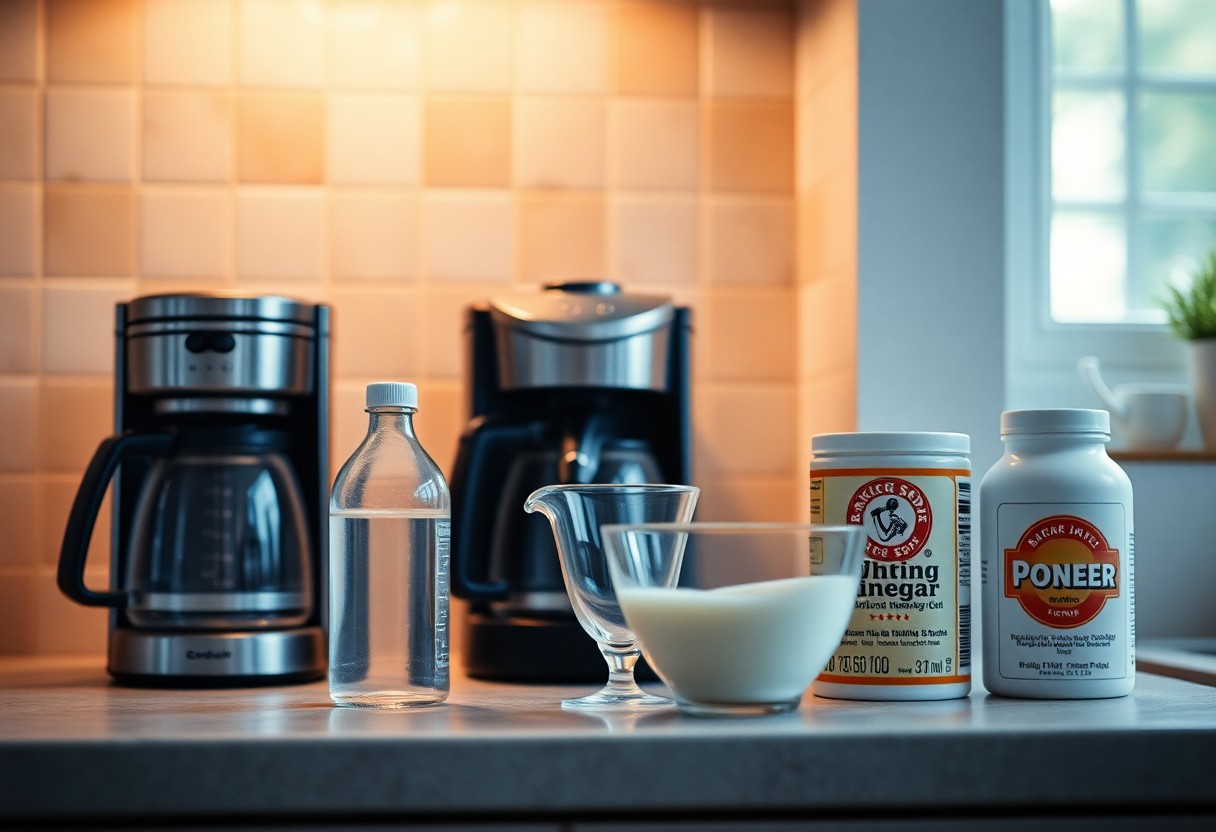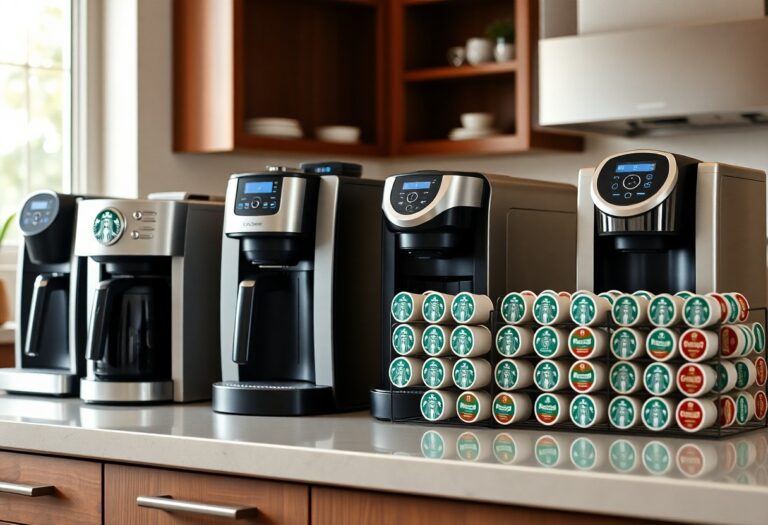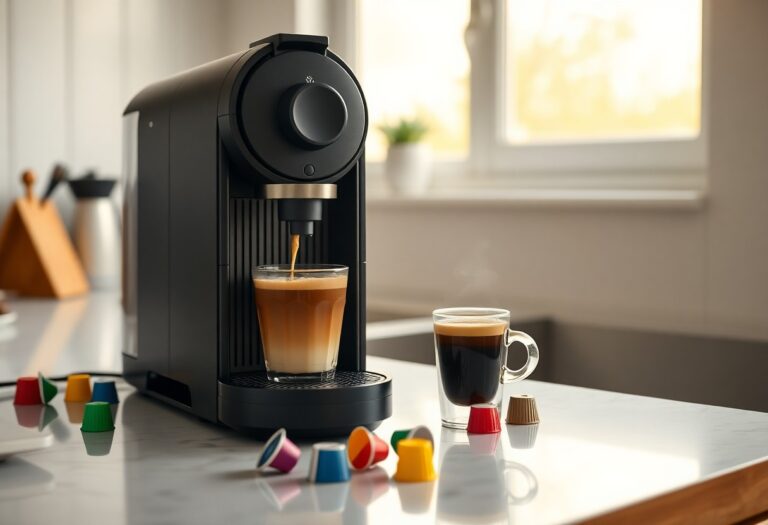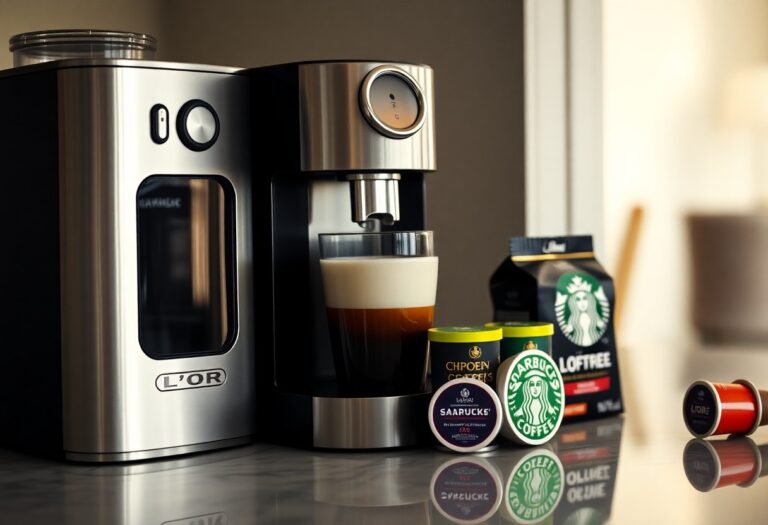What Can I Descale My Coffee Machine With – DIY Solutions
There’s a good chance your coffee machine is in need of descaling if you notice a decrease in performance or an off taste in your coffee. Descaling is vital for maintaining the longevity and efficiency of your machine. You might be surprised to know that there are several DIY solutions you can use to safely descale your coffee maker without the need for harsh chemicals. This guide will help you explore various effective options that utilize common household items, ensuring you can enjoy your coffee while keeping your machine in top condition.
Key Takeaways:
- Vinegar is a popular and effective natural option for descaling coffee machines, breaking down mineral buildup.
- Citric acid, often found in lemon juice or available in powdered form, is another safe and eco-friendly alternative for descaling.
- Baking soda can help with cleaning, but it is not recommended solely for descaling, as it may leave residues.
- Commercial descaling solutions are available if you prefer a specialized product designed for coffee machines.
- Always follow the manufacturer’s guidelines for descaling to avoid damaging your coffee machine.
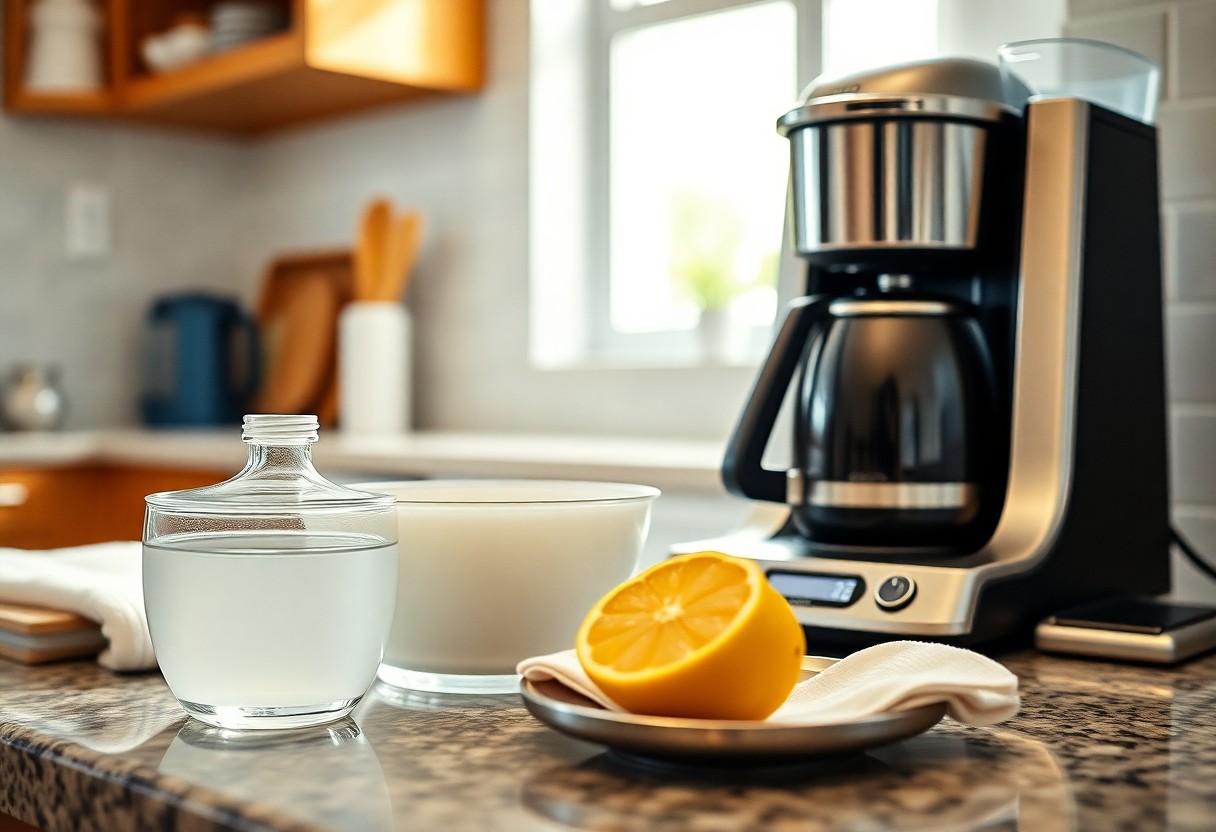
Common Descaling Agents at Home
Many kitchen staples can effectively tackle scale buildup in your coffee machine. These common household agents are not only easy to find but also often more environmentally friendly than commercial descalers. Some popular choices include vinegar, baking soda, and lemon juice. Each has unique properties that contribute to its effectiveness in breaking down mineral deposits, ensuring your coffee maker operates efficiently and brews the best flavor possible.
Vinegar: The Versatile Kitchen Hero
Vinegar stands out as a staple for descaling due to its acetic acid content, which easily breaks down mineral deposits. Simply mix equal parts vinegar and water, then run a full cycle through your coffee machine. This method not only cleans but also eliminates any lingering odors, leaving your machine fresh and ready for your next brew.
Baking Soda: A Gentle Abrasive Solution
Baking soda is a gentle yet effective cleaning agent that can be particularly useful for descaling your coffee machine. Combining it with water creates a mildly abrasive paste that can lift scale buildup without scratching your appliance’s surfaces. To use, mix a tablespoon of baking soda with water to form a slurry, pour it into the machine, and run a brewing cycle. Following up with a flush of clean water ensures no residue remains, allowing you to enjoy perfectly brewed coffee.
Using baking soda for descaling not only provides a safe solution but is also cost-effective. The alkaline properties of baking soda help neutralize the acidity of the minerals clogging your coffee maker. In addition, it acts as a deodorizer, combating any unpleasant smells caused by old coffee oils or residue. Being non-toxic, it’s a great alternative if you’re concerned about chemical cleaners impacting your health or the environment. Regular maintenance with this simple agent can significantly extend the lifespan of your coffee machine.
The Power of Citric Acid
Citric acid stands out as a natural and effective descaling agent for your coffee machine. Not only does it break down mineral deposits, but its non-toxic nature makes it safe for both you and your appliance. You can learn more about the best practices in [How To Clean And Descale A Coffee Maker](https://www.kitchenaid.com/pinch-of-help/countertop-appliances/how-to-clean-and-descale-a-coffee-maker.html). This organic compound, often derived from citrus fruits, not only enhances the taste of your brew but also protects the integrity of your machine.
Why Citrus is a Go-To Descaler
Citrus fruits, especially lemons, are brimming with citric acid, which effectively dissolves limescale. This natural compound works by breaking down hard water deposits found in your coffee machine, allowing for a more efficient and cleaner brewing process. Additionally, the fresh scent can keep your coffee machine smelling pleasant while you tackle the tough task of descaling.
DIY Citric Acid Solutions: Recipes and Ratios
Creating your own citric acid solution for descaling is straightforward. Typically, a one-part citric acid to four-parts water ratio works well. For example, mixing 3 tablespoons of citric acid in 1 liter of water yields an effective solution. You can run this solution through your coffee machine, letting it sit for about 15 minutes before rinsing with fresh water to ensure all residuals are cleared.
For those looking to experiment, you can adjust the ratios based on the severity of scaling in your machine. If you notice persistent buildup, increasing the citric acid concentration to a 1:2 ratio may provide better results. Be sure to set aside a weekend to handle multiple runs if you’re facing heavy scaling. This process not only revitalizes your machine but also enhances your coffee’s flavor, making it a worthwhile investment of your time.
Commercial Products Worth Considering
If you prefer ready-made solutions for descaling your coffee machine, several commercial products are available that can effectively remove mineral buildup. These products are formulated with specific acids or compounds designed to dissolve limescale while being safe for your machine. Brands like Durgol, Urnex, and De’Longhi have established reputations for providing reliable descalers that simplify the maintenance process, ensuring your coffee tastes as fresh as possible.
The Efficacy of Store-Bought Descalers
Store-bought descalers typically use acids like citric acid or lactic acid, which are known to penetrate and dissolve mineral deposits efficiently. They are formulated to eliminate scale without damaging your machine’s internal components. Positive reviews and consistent performance make these products a trustworthy option for regular maintenance without the headache of DIY methods.
Comparing Cost-Effectiveness with DIY Methods
When weighing the cost-effectiveness of commercial products against DIY methods, consider the price per use. Store-bought descalers tend to range from $10 to $20, but they often only require minimal amounts for each application. In contrast, DIY descalers like vinegar or citric acid can be much cheaper but may require larger quantities or more frequent use. This assessment ultimately depends on your specific coffee machine and descaling frequency.
Cost-Effectiveness Comparison
| Method | Approx. Cost/Use |
|---|---|
| Store-Bought Descalers | $1-2 |
| DIY Methods (Vinegar/Citric Acid) | $0.50-1 |
Considering long-term expenses, store-bought descalers generally fall within a manageable price range, balancing convenience with efficiency. However, if you’re using your coffee machine frequently and have access to inexpensive DIY materials, they may serve as a more budget-friendly alternative. Ultimately, it allows you to tailor your descaling routine based on both your preferences and economic considerations.
Diy vs Store-Bought Cost Analysis
| Aspect | Store-Bought Descalers |
|---|---|
| Convenience | High – ready to use |
| Effectiveness | Consistent and reliable |
| Frequency Required | Less often |
| Cost | $10-$20 per bottle |
| Quantity Used | Small amount per use |
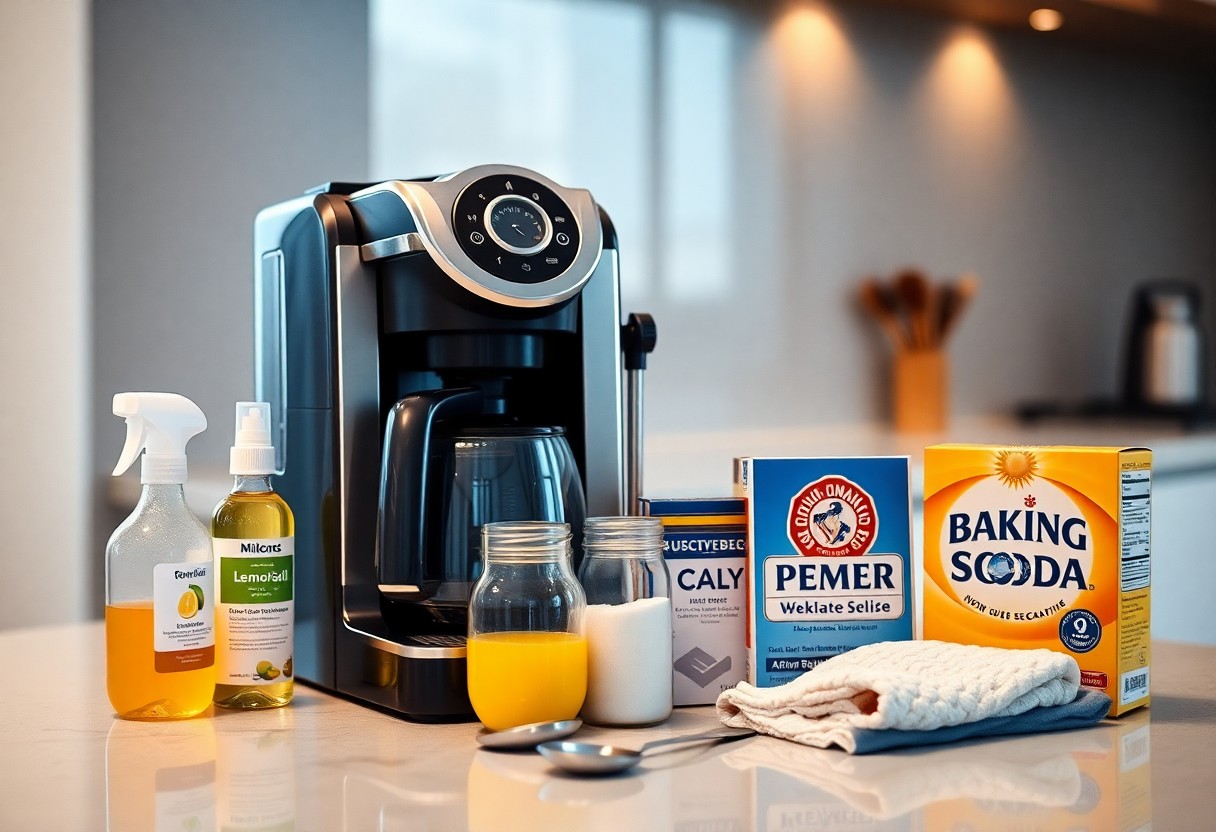
Practical Steps for Effective Descaling
Descaling your coffee machine effectively ensures that it works optimally, prolonging its lifespan and maintaining the flavor of your coffee. Follow a structured approach to ensure thorough cleaning of internal components that usually build up limescale. You can achieve this with common ingredients like vinegar or citric acid, both of which tackle mineral buildup effectively.
Step-by-Step Guide to Descale Your Coffee Machine
| Step 1: Prepare your descaling solution. | Mix water with either vinegar or citric acid. |
| Step 2: Fill the water reservoir. | Pour your solution into the coffee machine’s reservoir. |
| Step 3: Run the brew cycle. | Start the machine’s brewing cycle to let the solution work through. |
| Step 4: Rinse thoroughly. | Run two to three cycles with fresh water to remove any taste of the solution. |
Tips for Maintaining Your Coffee Machine Post-Descaling
To keep your coffee machine in top shape after descaling, focus on regular maintenance. Cleaning the coffee pot and filter basket after each brew helps prevent coffee oils from building up. Additionally, regularly using filtered water can reduce mineral deposits from tap water.
- Perform a quick rinse after each brew.
- Store coffee in a cool, dry place.
- Adopt monthly descaling rituals.
Adopting a proactive approach to your coffee machine maintenance can significantly enhance its performance. Regular cleaning not only removes residue but also ensures optimal brewing temperature. Periodic descaling will keep it running efficiently and extend its longevity.
- Opt for high-quality coffee beans.
- Change water filters as needed.
- Handle with care during cleaning.
Perceiving these maintenance tips as integral to your coffee experience can elevate your daily brew, keeping it fresh and flavorful for longer.
Common Mistakes and Tips for Success
Minimizing common mistakes while descaling your coffee machine can significantly enhance your results. Here are some handy tips for success:
- Avoid using strong acids that may damage internal components.
- Do not skip rinsing; leftover descaling solution can affect taste.
- Follow the manufacturer’s guidelines regarding descaling frequency.
- Regularly check the water reservoir for build-up.
- Use a soft cloth to clean external components without scratching.
After making these adjustments, you will find that your coffee machine performs at its best.
Avoiding Over-Descaling Your Coffee Machine
Over-descaling can lead to damage and malfunctions in your coffee machine. Too frequent descaling strips vital limescale build-up that can help protect internal components. If you’re descaling every month, you might want to reconsider; instead, assess the hardness of your water and adjust accordingly.
Understanding Signs Your Machine Needs Descaling
Recognizing when your coffee machine requires descaling can help maintain its longevity and performance. Key indicators include slow brewing time, odd tastes in your coffee, or visible mineral deposits in the water reservoir or brewing components. Regularly monitoring your machine helps you keep track of its health and avoid larger issues.
Continuous monitoring of your coffee machine’s performance is vital. A machine working harder to push water through limescale build-up may show a gradual decline in brewing efficiency. Noticing these changes early on allows you to take remedial steps promptly, ensuring that your morning brew remains delightful and hassle-free.
Conclusion
The process of descaling your coffee machine doesn’t have to be complicated or expensive. You can effectively use common household items like vinegar, baking soda, or citric acid to restore your machine’s performance. By applying these DIY solutions, you ensure that your coffee remains flavorful and your machine operates efficiently. For further guidance on the effectiveness of these methods, you can refer to this informative article on Cleaning a Coffee Pot: Vinegar vs. Descaling Solution. Happy brewing!
FAQ
Q: What are some DIY solutions to descale my coffee machine?
A: There are several effective DIY solutions to descale your coffee machine. Common household items such as white vinegar, citric acid, and baking soda can be used for descaling. Mix equal parts of water and white vinegar and run it through the machine. For citric acid, dissolve a couple of tablespoons in water and follow the same procedure. Baking soda can also be diluted in water (about one tablespoon per cup) to create a cleaning solution.
Q: Is white vinegar safe for all types of coffee machines?
A: While white vinegar is a widely accepted descaling agent, it may not be suitable for all coffee machines, particularly those with sensitive components like certain espresso machines. It’s advisable to consult the manufacturer’s guidelines to ensure vinegar won’t void the warranty or damage the machine. If in doubt, citric acid may be a gentler alternative that works effectively without the potential risks associated with vinegar.
Q: How often should I descale my coffee machine using DIY methods?
A: The frequency of descaling depends on several factors, such as the hardness of your water and how often you use your coffee machine. Generally, it’s recommended to descale every 1 to 3 months. If you notice slower brew times, scale build-up, or off-flavors in your coffee, it may be time to descale sooner.
Q: What should I do after using a DIY descaling solution?
A: After using a DIY descaling solution, it’s important to thoroughly rinse your coffee machine to remove any remaining solution. Run one to two cycles of clean water through the machine without coffee grounds. This will help eliminate any residual taste and ensure that your next pot of coffee isn’t affected by the descaling ingredients.
Q: Can I use lemon juice as a descaling agent for my coffee machine?
A: Yes, lemon juice can be an effective natural descaling agent due to its acidic properties. To use it, mix about 1 part lemon juice with 2 parts water and run this solution through your coffee machine. Just like with other DIY solutions, ensure to run clean water cycles afterward to remove any citric residue before brewing your next cup of coffee.

